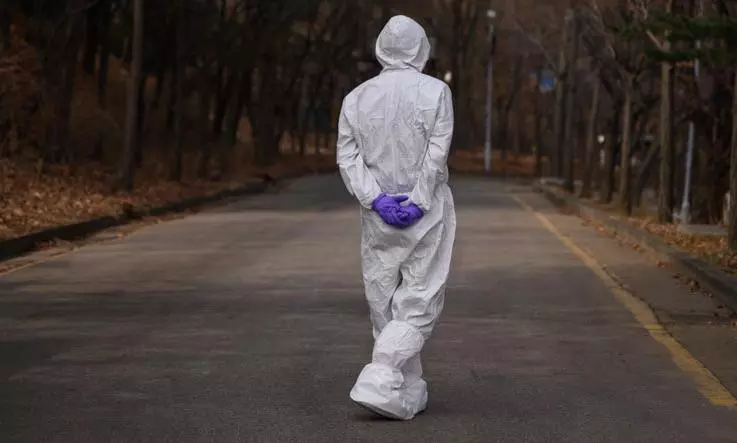Winter & COVID-19: Without proper guidelines, second wave could be devastating
This winter is set to send a chill down your spine. The SARS- CoV-2 virus (coronavirus) is looming out of the darkness like the headlights of a runaway train. Health care personnel all over the world are dreading the onset of winter
By Dr Ravi Andrews
Hyderabad: This winter is set to send a chill down your spine. The SARS- CoV-2 virus (coronavirus) is looming out of the darkness like the headlights of a runaway train. Health care personnel all over the world are dreading the onset of winter which is likely to herald the second wave of COVID-19 infections. The second wave has already started in Europe. The US has still not gotten over the first wave. The second wave is expected to hit India in January.
Most pandemic viral infections have two waves. The first wave is the initial period when a large number of people are infected in a particular area. Then the number of infected people reduces due to strict lockdowns, social distancing, and other regulations. After the initial cases decrease, the lockdowns are eased and regulations relaxed. This results in a fresh wave of infections and the number of cases start to rise again. In most pandemics, the second wave is often worse and more terrible than the first wave. Some pandemics even have a third wave but usually, after the second wave, the number of cases gradually decreases. This is due to the development of vaccines and validated treatment and also the development of herd immunity among the people.
Respiratory viruses affect people mostly during the winter months and if the timing of the second wave coincides with winter it can be devastating. This is exactly what is happening with the novel coronavirus. The first wave is over and now the second wave has started with the onset of winter.
India is particularly vulnerable to a second wave. The high density of population and poor living standards impact social distancing norms. Lack of awareness and poor education prevent the general public from following preventive measures. Poor healthcare infrastructure impairs adequate medical care. To top it all, there is a spate of major festivals during the winter months leading to crowding and close contact among people. Most marriages and engagements in India are held during these months leading to people gathering in large groups.
Though the economy has been majorly hit and many people are suffering from "lockdown fatigue", we must not relax. The vaccine is still a few months away for most of us. Health care limitations persist. We must strive to prevent or reduce the intensity of the second wave by social distancing, wearing masks, and following strict hygienic guidelines. Otherwise, the second wave of COVID-19 will be tsunamic.